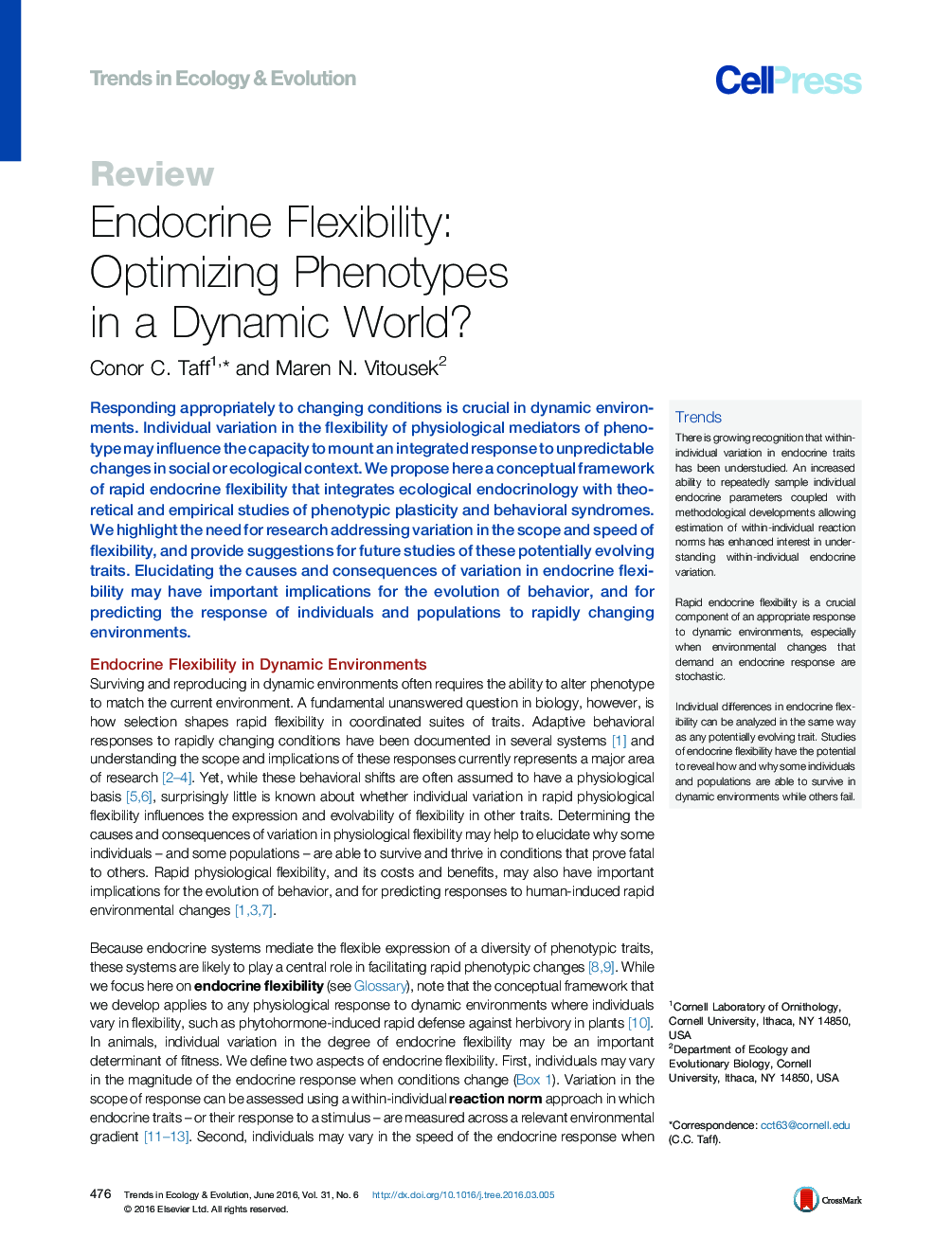| کد مقاله | کد نشریه | سال انتشار | مقاله انگلیسی | نسخه تمام متن |
|---|---|---|---|---|
| 142280 | 163094 | 2016 | 13 صفحه PDF | دانلود رایگان |
Responding appropriately to changing conditions is crucial in dynamic environments. Individual variation in the flexibility of physiological mediators of phenotype may influence the capacity to mount an integrated response to unpredictable changes in social or ecological context. We propose here a conceptual framework of rapid endocrine flexibility that integrates ecological endocrinology with theoretical and empirical studies of phenotypic plasticity and behavioral syndromes. We highlight the need for research addressing variation in the scope and speed of flexibility, and provide suggestions for future studies of these potentially evolving traits. Elucidating the causes and consequences of variation in endocrine flexibility may have important implications for the evolution of behavior, and for predicting the response of individuals and populations to rapidly changing environments.
TrendsThere is growing recognition that within-individual variation in endocrine traits has been understudied. An increased ability to repeatedly sample individual endocrine parameters coupled with methodological developments allowing estimation of within-individual reaction norms has enhanced interest in understanding within-individual endocrine variation.Rapid endocrine flexibility is a crucial component of an appropriate response to dynamic environments, especially when environmental changes that demand an endocrine response are stochastic.Individual differences in endocrine flexibility can be analyzed in the same way as any potentially evolving trait. Studies of endocrine flexibility have the potential to reveal how and why some individuals and populations are able to survive in dynamic environments while others fail.
Journal: - Volume 31, Issue 6, June 2016, Pages 476–488
